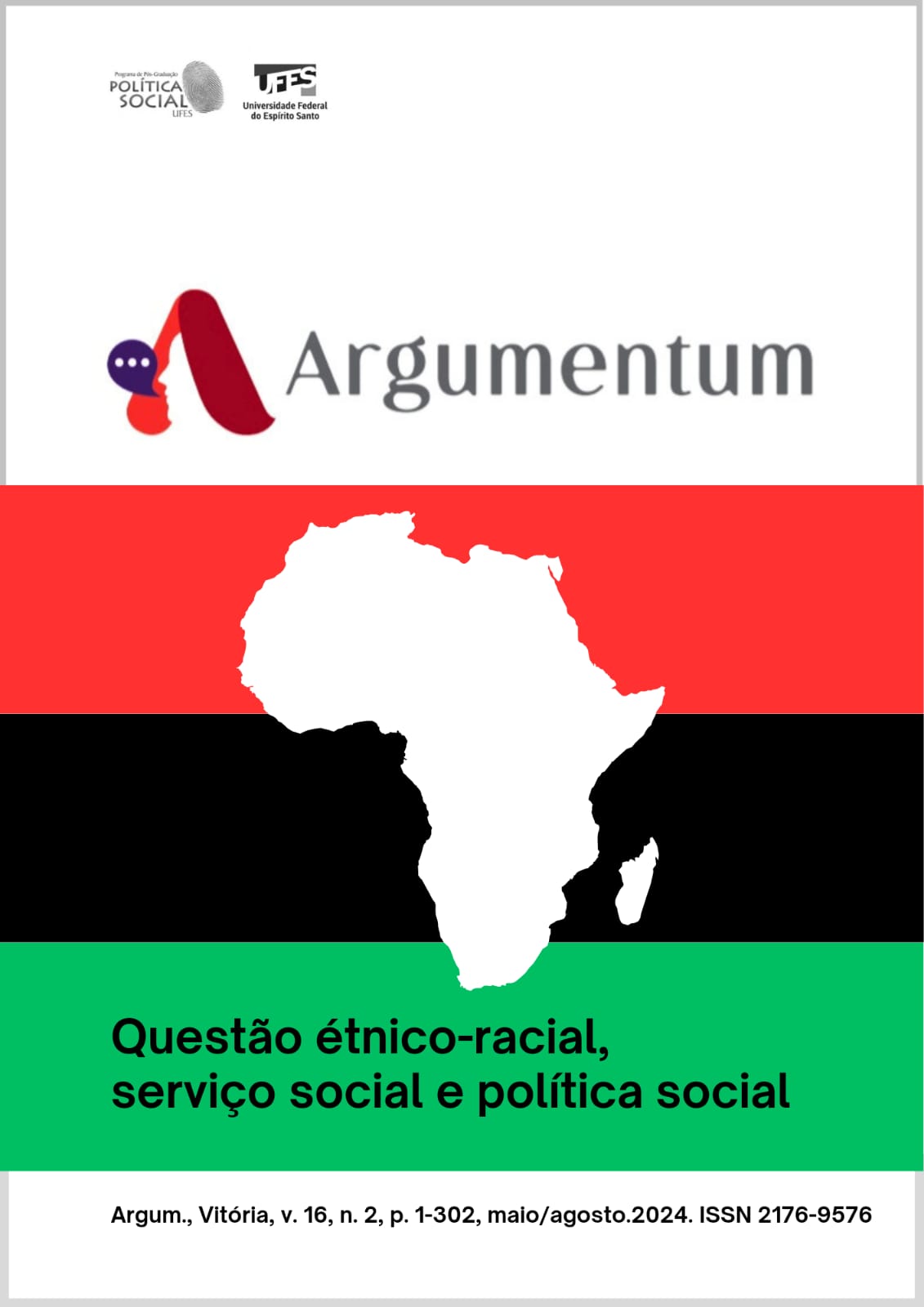Quarto de despejo e Olhos d’água: o despertar de um sono injusto
DOI:
https://doi.org/10.47456/argumentum.v16i2.42790Resumo
O artigo objetiva lançar luz sobre o papel da literatura na interpretação da formação social brasileira, com maior ênfase na questão racial. Elaborado a partir de uma pesquisa qualitativa de caráter bibliográfico, busca, inicialmente, abordar a relação entre literatura e sociedade. Na sequência, desenvolve uma reflexão sobre as implicações do racismo e do mito da democracia racial sobre o genocídio da população negra e demonstra como a escrita de Carolina Maria de Jesus e Conceição Evaristo denunciam tal realidade e apontam caminhos de resistência. Os resultados indicam o potencial da literatura e das obras analisadas enquanto instrumentos de crítica social e análise da realidade brasileira.
Publicado
Edição
Seção
Licença
Copyright (c) 2024 Argumentum

Este trabalho está licenciado sob uma licença Creative Commons Attribution 4.0 International License.
Termo de Cessão de Direitos Autorais
Como condição para a submissão, os autores devem concordar com o Termo de Cessão de Direitos Autorais, marcando a caixa de seleção após a leitura das cláusulas.
O(s) autor(es) doravante designado(s) CEDENTE, por meio desta, cede e transfere, de forma gratuita, a propriedade dos direitos autorais relativos à revista Argumentum, do Programa de Pós-graduação em Política Social, Universidade Federal do Espírito Santo - Av. Fernando Ferrari, 514 - Goiabeiras 29075-910, Vitória (Brasil) doravante designada CESSIONÁRIA, nas condições descritas a seguir:
1. O CEDENTE declara que é (são) autor(es) e titular(es) da propriedade dos direitos autorais da OBRA submetida.
2. O CEDENTE declara que a OBRA não infringe direitos autorais e/ou outros direitos de propriedade de terceiros, que a divulgação de imagens (caso as mesmas existam) foi autorizada e que assume integral responsabilidade moral e/ou patrimonial, pelo seu conteúdo, perante terceiros.
3. O CEDENTE cede e transfere todos os direitos autorais relativos à OBRA à CESSIONÁRIA, especialmente os direitos de edição, de publicação, de tradução para outro idioma e de reprodução por qualquer processo ou técnica. A CESSIONÁRIA passa a ser proprietária exclusiva dos direitos referentes à OBRA, sendo vedada qualquer reprodução, total ou parcial, em qualquer outro meio de divulgação, impresso ou eletrônico, sem que haja prévia autorização escrita por parte da CESSIONÁRIA.
4. A cessão é gratuita e, portanto, não haverá qualquer tipo de remuneração pela utilização da OBRA pela CESSIONÁRIA.

